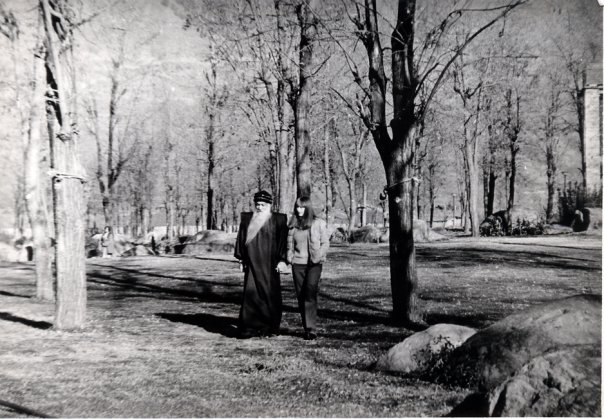Osho – Being blissful is taking a risk — because the mob lives in misery, and naturally it does not allow anybody to be blissful. That hurts the crowd, it wounds the mob; they start thinking “How dare you be blissful?” They are very at ease if you are miserable; they are sympathetic, friendly, because you are just like them, you are not a foreigner. The moment you become blissful you are a foreigner, you are an outsider — and people have always been afraid of outsiders.
They know the insiders, they are familiar with them, they can rely on them because they are predictable, but the outsider is unpredictable. And the blissful person is the farthest away from the crowd. He is really a stranger; he belongs to another world, not only to another country. He speaks a totally different language, he lives a totally different kind of life; hence people feel a certain distance from such a person. Either they will condemn him as mad… that is their first reaction. That’s what they are doing to many people in Soviet Russia. They will torture them, give them psychological shocks, electric shocks. They cannot accept that you can be so blissful. It is not possible — you must be insane.
The first reaction of the society is to condemn the person as mad: if one is mad one can be ignored. And there are many people in the madhouses of the world who are not mad, they are simply different and people cannot tolerate that. If the person is very powerful, like Jesus, Buddha or Zarathustra, then you cannot just call him mad. He will persist, he will try to prove in every possible way that you are wrong. And in a way people start feeling doubtful about their own ideas. When they see a Buddha so silent, so blissful, such a beautiful space surrounding him, they become suspicious of their own idea that he is mad or that he is a fool. And people like Buddha are very persuasive, almost seductive.
Then the second step for the society is to condemn that man as anti-traditional, anti-religious, anti-country, and finish him somehow. They killed Socrates, Mansoor, and many others. One of the most beautiful men, a Sufi mystic, Sarmad, was killed — his head was cut off — for the simple reason that he was so blissful that the priests and the king conspired against him. Just before his head was cut off he said, “You can cut off my head, but you cannot cut my laughter. Even when my head is separate from me you will hear my laughter — I will haunt you!” And the beautiful story goes that when his head was cut off it rolled down the steps of the mosque where he was murdered — laughing, giggling!
Such people can be blissful in life and can be blissful in death too. That is the meaning of the story: they laugh their whole way to God. But that needs courage — and that is the meaning of your name: blissful courage. It needs a strong spirit because it will be going against the current.
My sannyasins will have to face many antagonistic situations. They will be thought outrageous, rebels, dropouts; all kinds of condemnations will be heaped upon them. And if they don’t listen — and they are not going to listen — then they will even be killed, condemned to death. But it is better to die rejoicing than to live in misery. Just a single moment of joy is far more valuable than an eternity of misery. I teach you only one thing, and that is, be blissful — whatsoever the cost.
Source – Osho Book “Going All The Way”
